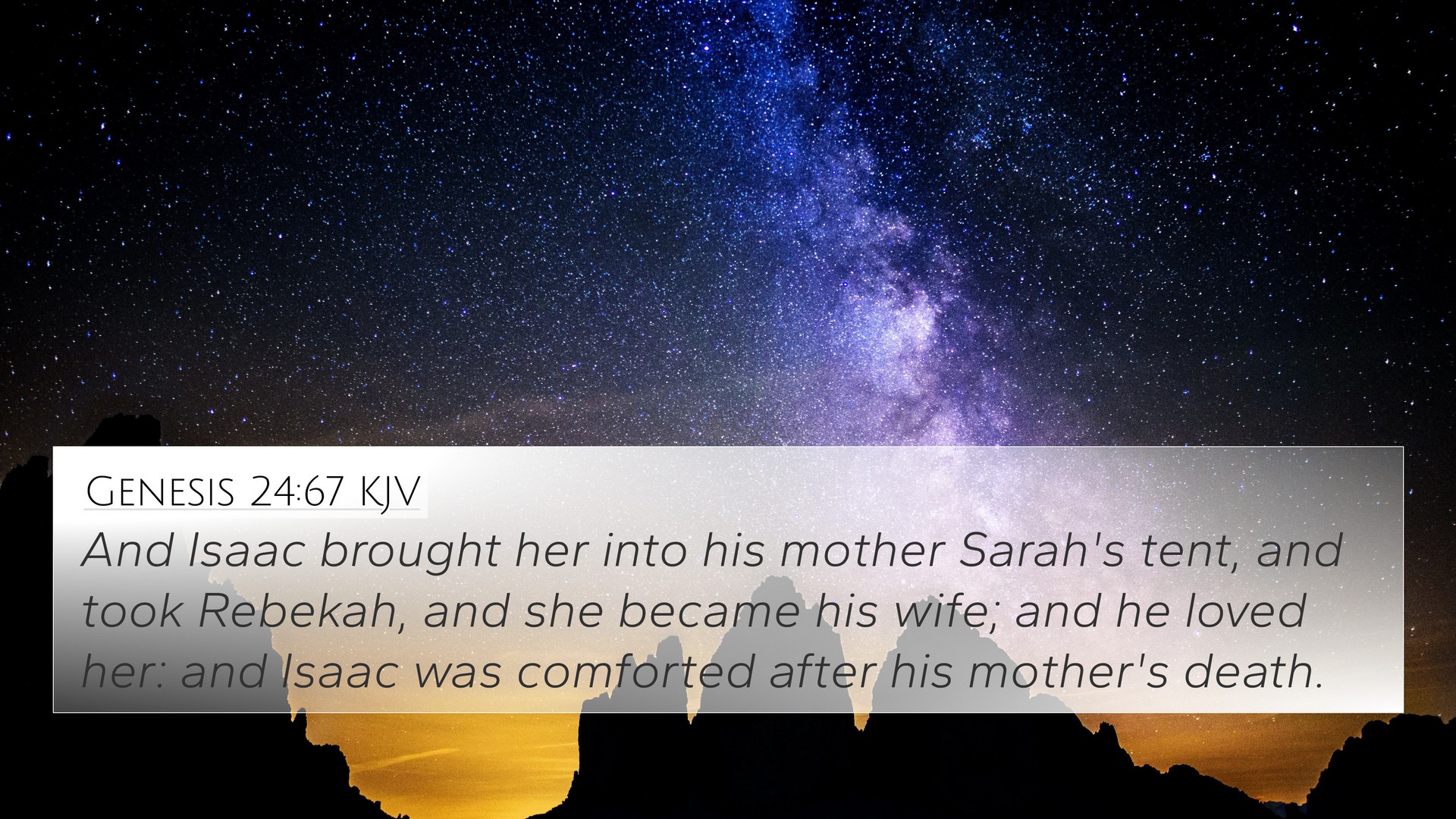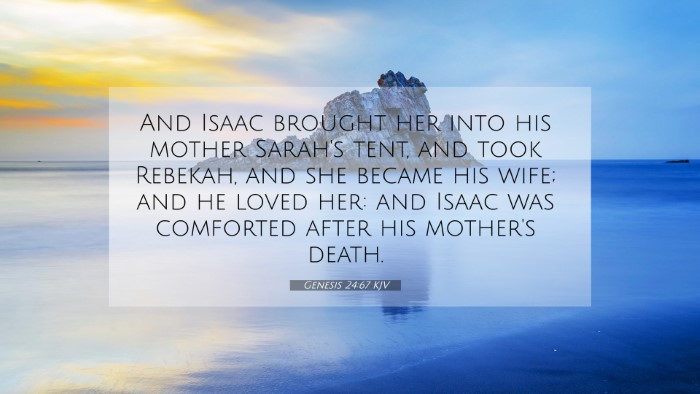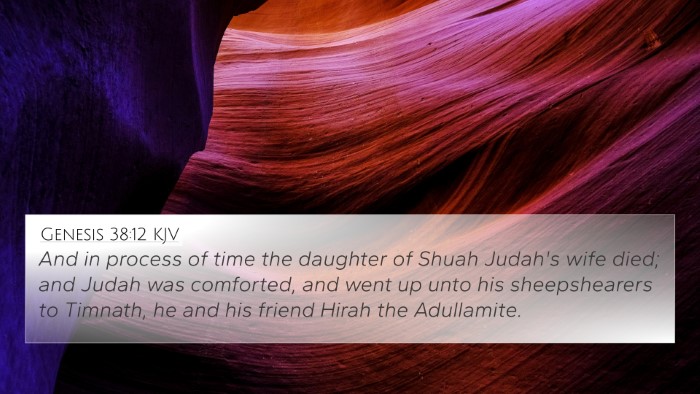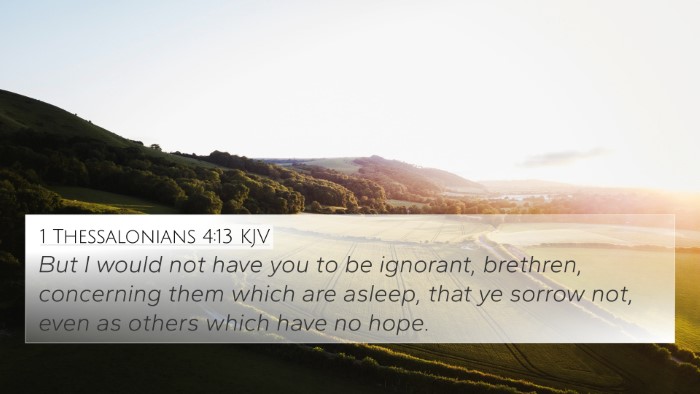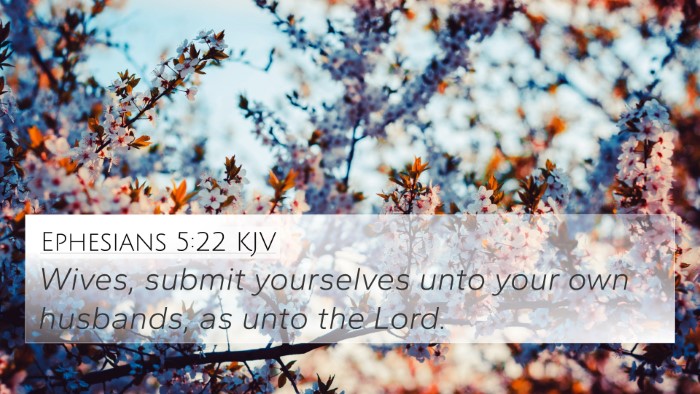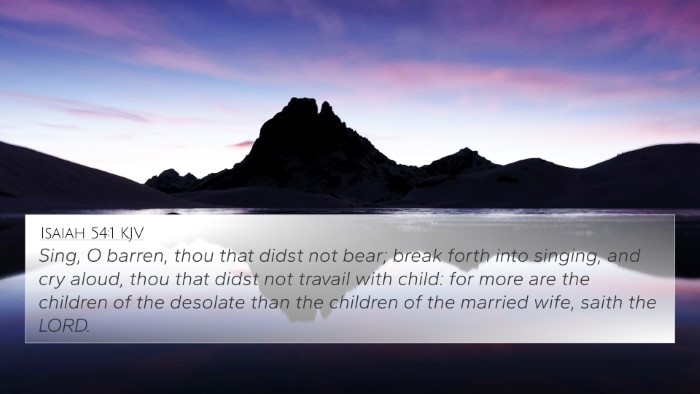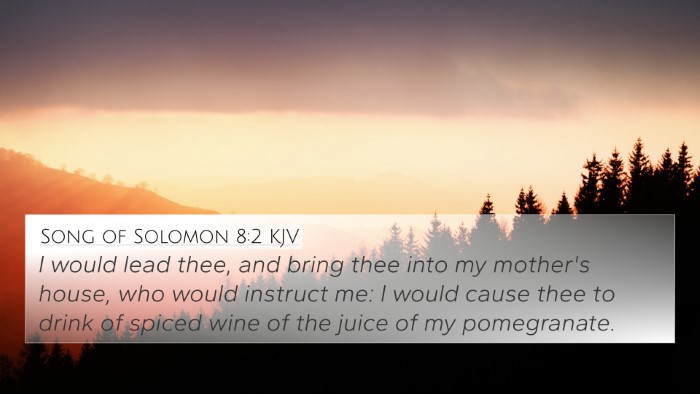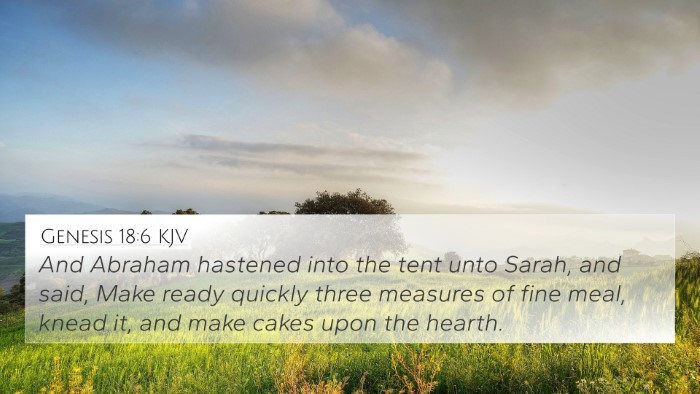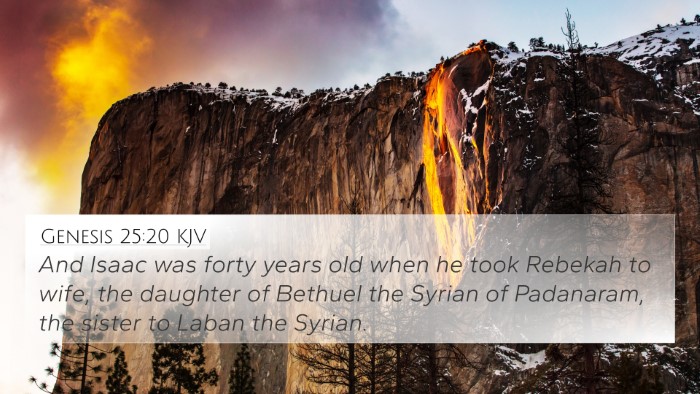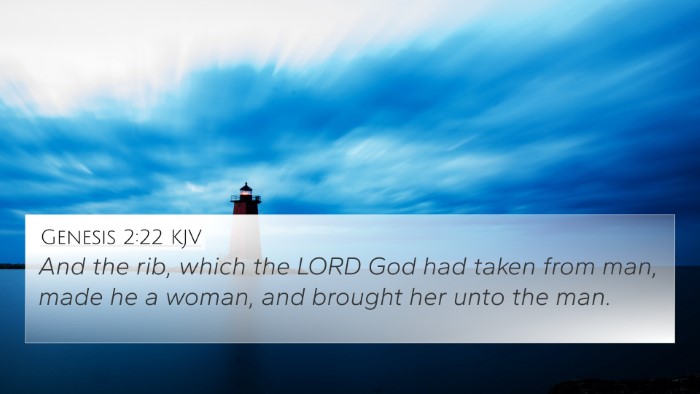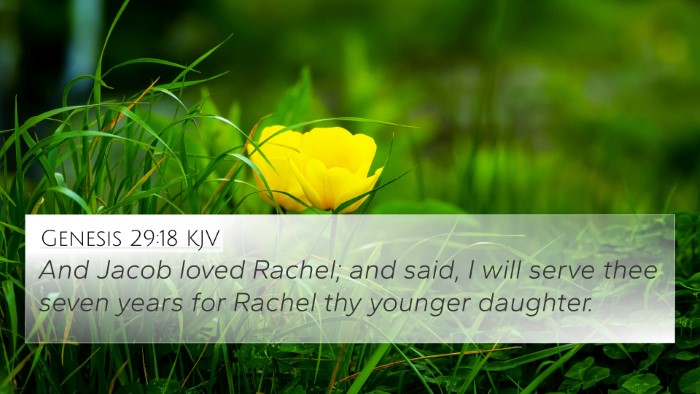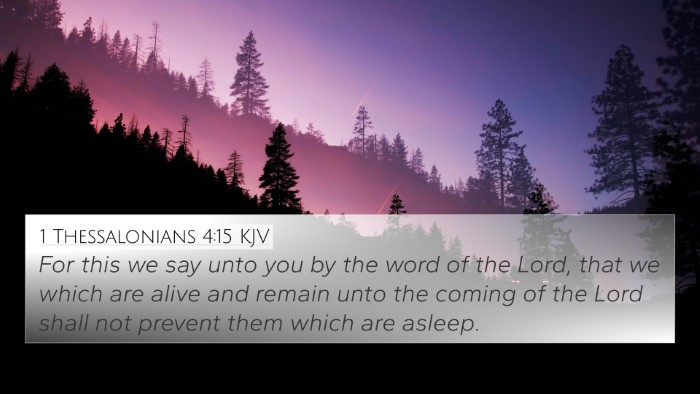Understanding Genesis 24:67
Verse: Genesis 24:67 - "And Isaac brought her into his mother Sarah's tent, and took Rebekah, and she became his wife; and he loved her: and Isaac was comforted after his mother's death."
This verse encapsulates a significant moment in the life of Isaac, marking his union with Rebekah and serving as a poignant conclusion to the chapter. The act of bringing Rebekah into his mother’s tent symbolizes not just the physical union of marriage but also a deep emotional and familial bond.
Contextual Background
The context of this verse is critical to understanding its implications. Isaac, the son of Abraham and Sarah, had just experienced the loss of his mother, a pivotal character in the narrative. His marriage to Rebekah signifies a transition from the sorrow of loss to the joy of new beginnings.
Commentary Insights
Matthew Henry's Commentary
Matthew Henry highlights the significance of Rebekah’s introduction into the tent as a sign of blessing and continuity. He points out that Rebekah becoming Isaac’s wife not only fulfills God's promise to Abraham regarding his descendants but also signifies a restoration of peace and companionship for Isaac following his mother’s death.
Albert Barnes' Notes on the Bible
Albert Barnes notes that this marriage is not merely a personal union but a fulfillment of divine purpose. He emphasizes Isaac's emotional state, suggesting that Rebekah's arrival serves as a means of comfort for Isaac, indicating that God provides companionship as a remedy for grief. The tent also symbolizes the household of Abraham, reinforcing the importance of family lineage in God’s covenantal promises.
Adam Clarke's Commentary
Adam Clarke elaborates on the cultural significance of marriage at that time, noting that Rebekah's entrance into Sarah’s tent indicates her acceptance into Isaac’s family and the continuation of the legacy of faith. Clarke also emphasizes the love that blossomed between Isaac and Rebekah and its significance in the broader narrative of the patriarchs.
Thematic Connections
This verse presents several thematic connections not only within the Book of Genesis but throughout the Scriptures. The transition from mourning to marital joy is a recurring theme within the biblical narrative, illustrating God's providence in the midst of human sorrow.
Cross-References
- Genesis 2:24: "Therefore shall a man leave his father and mother, and shall cleave unto his wife: and they shall be one flesh." - Emphasizes the sanctity of marriage.
- Genesis 22:20-24: Introduction of Rebekah's family background, providing context for her character and significance.
- Genesis 25:20: Rebekah’s importance is furthered as the mother of Jacob and Esau, which ties to the lineage.
- Proverbs 18:22: "Whoso findeth a wife findeth a good thing, and obtaineth favor of the Lord." - Reflects on the blessings of a good marriage.
- Genesis 29:21-30: The story of Jacob and Leah/ Rachel, highlighting the difficulties and joys of marital relationships.
- 1 Corinthians 7:39: "The wife is bound by the law as long as her husband liveth; but if her husband be dead, she is at liberty to be married to whom she will." - The principles of marriage and widowhood.
- Ruth 1:16-17: "Entreat me not to leave thee..." - Emphasizes loyalty and the bond of companionship.
Insights on Cross-Referencing
Using cross-references provides a deeper understanding of Genesis 24:67 and highlights the interconnectedness of Biblical events and themes. By identifying connections between scriptures, such as those from the Old and New Testaments, readers can see a broader tapestry of God's plan for humanity.
Tools for Bible Cross-Referencing
For those seeking deeper knowledge, the following tools can be beneficial:
- Bible Concordance
- Cross-Reference Bible Study Guides
- Comprehensive Bible Cross-Reference Materials
Conclusion
Genesis 24:67 is more than just a historical statement; it's a profound testament to God's faithfulness and the importance of relationships in the biblical narrative. Through the lenses of various commentaries and cross-references, we see that Isaac's marriage to Rebekah is a pivotal event filled with theological significance, illustrating both the continuity of God’s promises and the personal joys that come from divine providence.
As we explore these connections, we gain a richer understanding of the Scriptures, the role of faith in familial bonds, and the importance of companionship in the journey of life. The insights gained through comparative Bible verse analysis allow contemporary readers to see their experiences reflected in the trials and triumphs of biblical figures.
